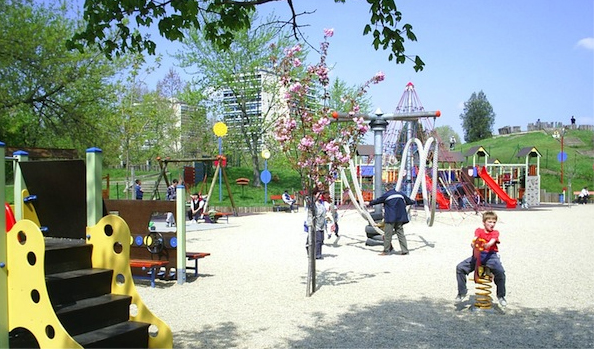Children’s playground programmes are run across Hungary by the Order of Malta Charity Service (MMSZ)
Marta welcomes a new family to ‘Lajos Utca children’s playground’ in a deprived suburb of Budapest. She encourages them to join in the games currently underway, and to check out the play area for their younger children. Another day, another family in need. The demand is always growing. Marta is in charge of this playground, runs two more, and is responsible for 33 playgrounds across Hungary, all run by the Order of Malta’s Charity Service (MMSz). She explains: ‘We focus on small children, and an older group aged 10-15. We offer playtime, some sport, a library, artwork and crafts. Every month we put out a newsletter and advertise community events. We are open all day, all week, every week. ’
A never-ending occupation which she has been involved in for over 14 years, Marta is passionate about her work. She opens the door to the small house in the corner of the playground. It is used in winter when the weather is too bitter to play outside. The two rooms are shining, spotless. The walls are covered with cheerful frescoes painted by the volunteer staff. There is a well ordered library, boxes of games all neatly stacked, art supplies arranged invitingly on low shelves. There are balls, large and small, bats round and tall, shuttlecocks, nets, chess sets.
The children who come, often daily, are from poor local housing estate families, where there is unemployment, or alcoholism, or violence, or depression. The playgrounds are an opportunity to be freed from the difficulties at home, and often the staff can interact with the families and help resolve problems.
A new initiative
As the State does not provide playgrounds, the MMSz has developed these projects across Hungary. They provide support and entertainment for the children, help them to integrate socially – and keep them busy and off the streets. A recent initiative has been the addition of mobile playgrounds which travel on a regular schedule to villages in remote areas. They are stocked with games – especially team games, sports equipment, a bouncy castle – to provide social interaction and activities for children who would otherwise have no diversion or place to meet and play, and are led by a small team of games leaders and social workers.










